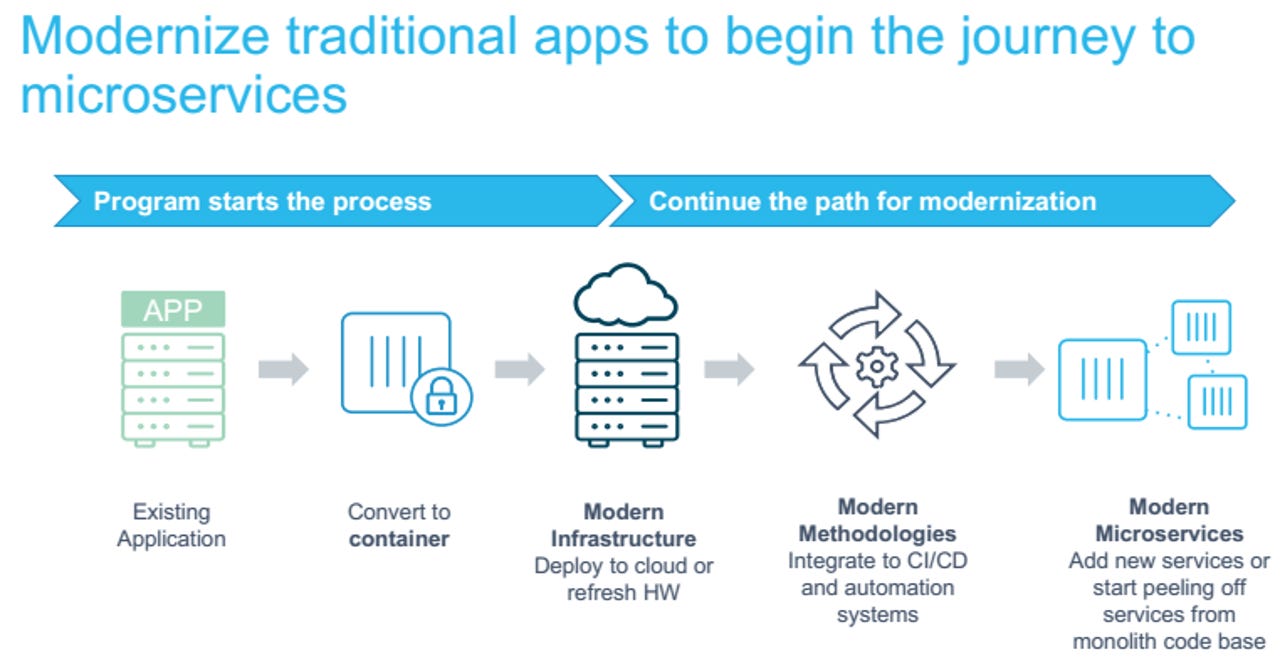New Docker turnkey program helps enterprises modernize legacy apps


Docker on Wednesday unveiled a new turnkey program designed to help enterprises modernize their legacy applications within a fixed period of time, for a fixed price and a constrained statement of worth.
The Modernize Traditional Apps (MTA) program was announced at Day 2 of DockerCon. With the assistance of consultants from Avanade, the program enables companies to convert applications to containers, deploy them to modern infrastructure and put them on Docker enterprise management.
Featured
"As a result, you'll get the benefits of portability, more security and more efficiency for an app that could be five, 10 or 15 years old," Docker COO Scott Johnston said to ZDNet. "For customers, this almost seems like magic because they can do this almost without touching the source code. They take what has been a big cost to them... and make it much more modern and up to date."
While professional services are part of the program, customers are required to staff three of their own employees alongside the consultants. That way, there's increasingly less need for assistance as they modernize other applications.
See also: 5 tips for securing your Docker containers (TechRepublic)
For infrastructure, Microsoft is providing Azure, while Cisco and HPE are providing hyper-converged infrastructure options. Docker plans on announcing subsequent infrastructure partnerships throughout the year for similar offerings.
Docker has been testing the program privately with a handful of customers over the last six months with positive results. The company Northern Trust modernized a Java Linux application via the MTA program and cut provision time down from 29 days to seven days. They cut infrastructure in half with no degradation and made it more secure.
"In the course of putting it in a container and under micro-management, they made it that much more reliable," Johnston said.
The program, he said, isn't intended to be a "one and done" deal. "It's really their first step toward a micro services endgame."
How Docker brought containers mainstream: